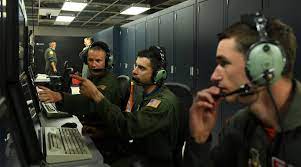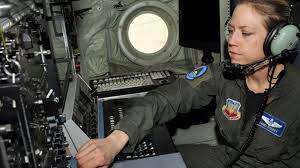
[ad_1]
Inside the Elite World of Airborne Cryptologic Language Analysts
The world of Airborne Cryptologic Language Analysts is a secretive and elite community, consisting of highly skilled linguists and intelligence professionals who specialize in the interception and analysis of foreign communications. These individuals play a critical role in providing intelligence support to military operations and national security missions around the globe.
Airborne Cryptologic Language Analysts, or ACLAs, are assigned to specialized units within the intelligence community, such as the United States Air Force’s 23rd Intelligence Squadron or the Navy’s Cryptologic Technician Networks. Their primary mission is to collect and exploit foreign communications, analyzing the content and extracting valuable intelligence for the benefit of the military and intelligence community.
The selection process for aspiring ACLAs is rigorous and highly competitive. Candidates must first demonstrate proficiency in one or more foreign languages, often through formal education or immersion programs. Fluency in multiple languages, particularly those of strategic interest to the United States, is highly valued. Additionally, candidates must possess strong analytical and critical-thinking skills, as well as an aptitude for working in high-stress environments.
Once selected, ACLAs undergo an extensive and demanding training program. This training varies depending on the specific branch and unit to which they are assigned. In the U.S. Air Force, for example, ACLAs attend the Airborne Cryptologic Language Analyst Initial Skills Course (ACLAI), where they learn the fundamentals of language analysis, signals intelligence, and airborne operations. This course is taught by experienced ACLAs and is designed to prepare students for the challenges they will face in the field.

After completing their initial training, ACLAs are assigned to airborne units, where they will spend a significant portion of their careers. These units operate aircraft equipped with advanced signals intelligence (SIGINT) collection systems, enabling them to intercept and analyze foreign communications while in flight. Whether on board an aircraft such as the RC-135 Rivet Joint or the EP-3 Aries, ACLAs work tirelessly to identify and exploit valuable intelligence from these intercepted communications.
Operating in these airborne environments presents unique challenges for ACLAs. The constant movement and limited space of the aircraft require them to be adaptable and resourceful in their work. They must also possess a strong understanding of the aircraft’s systems and the ability to troubleshoot technical issues that may arise during missions.
Beyond their technical skills, ACLAs must also develop strong interpersonal skills. As part of their mission, they often collaborate closely with other intelligence professionals and military personnel, sharing information and coordinating efforts to achieve mission objectives. Effective communication and teamwork are essential traits for success in this field.
In addition to their intelligence activities, ACLAs also play a critical role in training and mentoring the next generation of language analysts. Many senior ACLAs are responsible for teaching courses and providing guidance to junior analysts, passing on their knowledge and expertise. This commitment to professional development ensures the continued effectiveness and adaptability of the ACLA community.
The work of ACLAs is undoubtedly challenging and often takes them to the front lines of national security. Their intelligence gathering efforts directly contribute to the safety and success of military operations and play a vital role in understanding and countering the activities of foreign adversaries. The information they extract from intercepted communications can help identify potential threats, inform military strategy, and provide valuable insights into the intentions and capabilities of foreign entities.
The world of Airborne Cryptologic Language Analysts remains largely unknown to the general public, but its impact on national security cannot be overstated. These elite linguists operate in the shadows, using their language skills and analytical prowess to protect their nations from threats. Their dedication, discipline, and sacrifice ensure that vital intelligence is acquired, analyzed, and exploited to safeguard the interests of their countries.
Uncovering the Secrets of Cryptozoology: A Step-by-Step Guide
In conclusion, the work of Airborne Cryptologic Language Analysts is a testament to the complexity and importance of intelligence gathering in today’s global landscape. These individuals operate at the forefront of modern warfare, harnessing their linguistic abilities and technical expertise to intercept and analyze foreign communications. In the ever-evolving world of national security, the contributions of ACLAs cannot be overlooked, as they remain essential in defending their nations from both known and emerging threats.
[ad_2]







